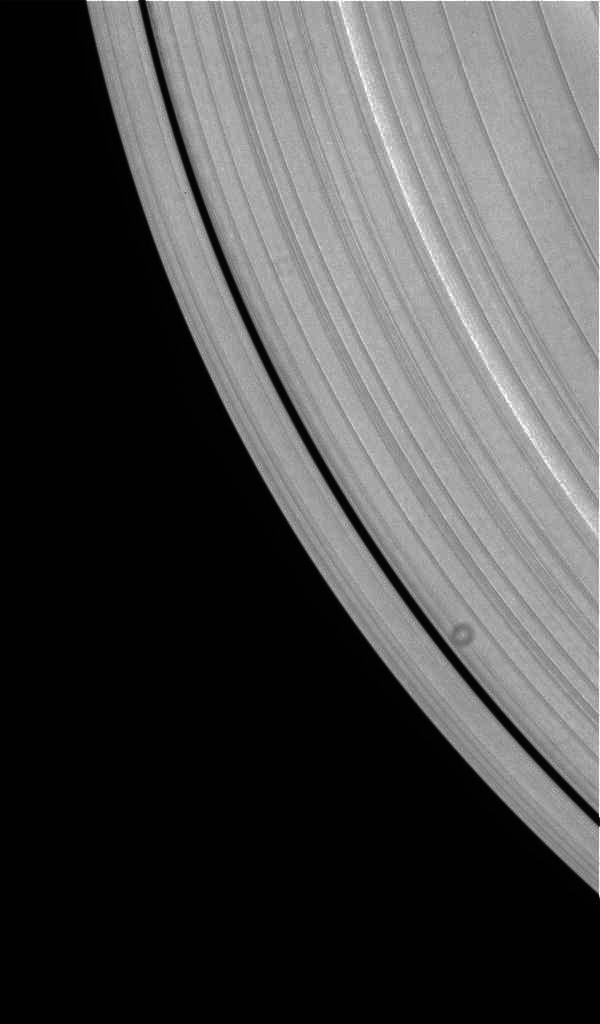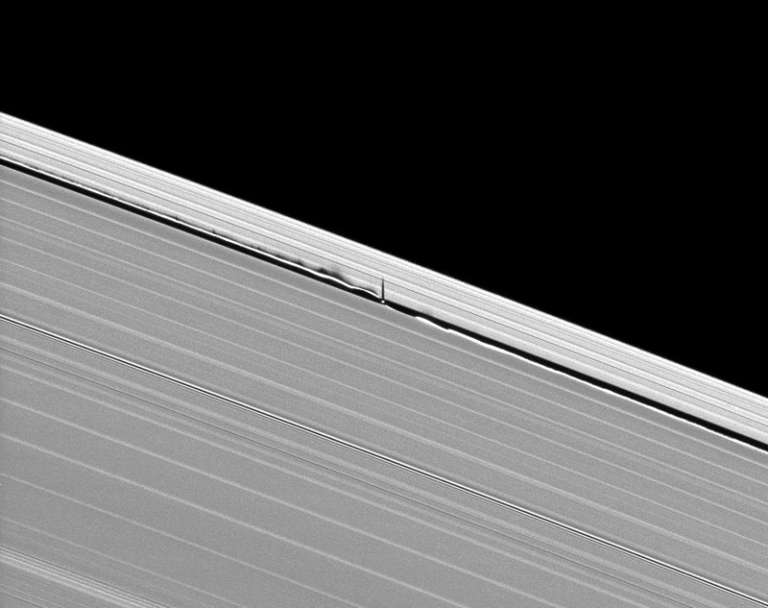Jason Davis • Aug 16, 2012
Daphnis cruises through the Keeler Gap
If you've been following Cassini lately, you've probably noticed a lot of rings pictures dominating the raw images. The spacecraft recently left Saturn's equatorial plane for an inclined orbit, which will allow it to capture polar views of the planet and its moons. It will also be making lots of rings observations.
When I see a big series of similar rings images, I'll often download them and splice them together to make a movie. While my results are hardly the stunning productions more experienced videographers have created, it's a fun way to watch the rings rotate, and occasionally you see something interesting happen.
I was doing just that with a set from August 14, and guess who wandered by? Hello, Daphnis! The tiny moon orbits Saturn in the Keeler Gap, which sits near the edge of the A ring. Its gravity tugs on the surrounding ring materials and produces gravitational ripples. I created a little animation to show its motion across Cassini's frame of view. The contrast and brightness have been altered to bring out more detail.

If you aren't terribly impressed with my animation, you're forgiven. But consider this: you're looking at a moon only 8 kilometers wide sitting in a gap of 42 kilometers. And those ripples Daphnis creates are not just horizontal; they have a vertical component as well, ranging up to 1.5 kilometers out of the ring plane. The rings are typically only 10 meters thick. Here's an angled shot Cassini captured in 2009 that shows shadows created by the moon and the ripples:

Remember, these images are available to the public! Check out Cassini's raw images section and see for yourself what surprises are waiting to be discovered.
Support our core enterprises
Your support powers our mission to explore worlds, find life, and defend Earth. You make all the difference when you make a gift. Give today!
Donate

 Explore Worlds
Explore Worlds Find Life
Find Life Defend Earth
Defend Earth

